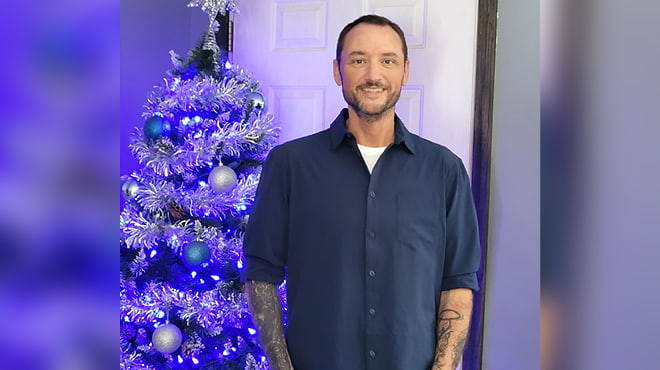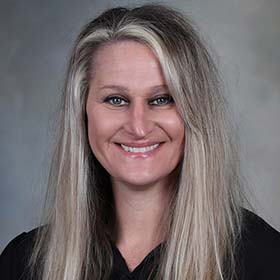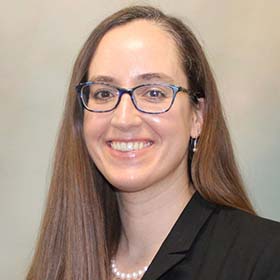
Bariatric Surgery
Patient Stories
Bariatric Surgery Program in La Crosse
Is your weight controlling your life and affecting your health? Have you tried every diet under the sun? Having bariatric surgery may be your solution for long-term weight loss. Considering bariatric surgery is a huge commitment, and we promise to be here for every question you have.
We know that being overweight isn't about a lack of willpower, and we offer proven, medically based solutions. Most importantly, we genuinely care about your success. You'll find sensitive, supportive and respectful help from experts in multiple medical specialties. You'll also be given information on insurance, medical consultations, hospital and follow-up care, exercise and nutrition, counseling and support groups along the journey. Your weight and other health information will be held in strict confidence. We support your every step, focusing on your emotional, physical, nutritional and educational needs.
Have questions? Email our team at eubariatricinfo@mayo.edu.
Accreditation
 The bariatric surgery program at Mayo Clinic Health System has received an advanced, high-acuity accreditation as a comprehensive center under the Metabolic and Bariatric Surgery Accreditation and Quality Improvement Program (MBSAQIP). MBSAQIP is a comprehensive, nationwide surgical quality program aimed at ensuring the safe and effective performance of metabolic and bariatric surgery. Surgical outcomes focus on weight loss and the treatment of obesity-related diseases, like diabetes, sleep apnea, and others. Research shows accredited centers experience lower complications, and better outcomes than that of non-accredited facilities.
The bariatric surgery program at Mayo Clinic Health System has received an advanced, high-acuity accreditation as a comprehensive center under the Metabolic and Bariatric Surgery Accreditation and Quality Improvement Program (MBSAQIP). MBSAQIP is a comprehensive, nationwide surgical quality program aimed at ensuring the safe and effective performance of metabolic and bariatric surgery. Surgical outcomes focus on weight loss and the treatment of obesity-related diseases, like diabetes, sleep apnea, and others. Research shows accredited centers experience lower complications, and better outcomes than that of non-accredited facilities.
This recognition illustrates the comprehensive care bariatric surgical patients receive here. It's a multidisciplinary program — not just a surgical procedure — which improves patient outcomes and ensures long-term success.
Learn more about bariatric surgery:
- Benefits of bariatric surgery
- Types of bariatric surgery procedures available
- After bariatric surgery
- Obesity causes
Benefits of bariatric surgery include:
- Normalized blood pressure and cholesterol
- Disappearance of type 2 diabetes
- Lowered risk of heart disease
- Improved breathing
- Relief from sleep apnea
- Disappearance of gastroesophageal reflux disease
- Relief from low back pain, and degenerative disk or joint disease
- Reduction in cancer risk
To be considered as a surgical candidate, you must:
- Be at least 18 years old
- Have a body mass index, or BMI, of 40 or above, or have a BMI of 35–40 with significant associated health problems, such as diabetes, heart problems, high blood pressure, high cholesterol or sleep apnea
- Have made documented attempts in the past to lose weight
- Have not had alcohol or chemical abuse issues
- Have no untreated psychiatric conditions as determined by a licensed psychologist or psychiatrist
Read FAQ about bariatric surgery.
Types of bariatric surgery procedures available:
Removal lap band
A surgical procedure to remove a previously placed laparoscopic gastric banding (lap band) that is around the upper part of the stomach and the port in the abdominal wall.
Bariatric revision
A secondary surgery performed after the initial gastric bypass procedure. The purpose is to repair or modify the original surgery, to either enhance its effectiveness or address any side effects.
Conversion to Gastric Bypass
A surgical procedure that changes the digestive path from the stomach to the small intestine. It is recommended when the gastric sleeve or other prior bariatric procedure does not achieve the desired weight loss or causes complications.
Roux-en-Y gastric bypass
Sleeve gastrectomy
After bariatric surgery
Follow-up is an important part of the bariatric surgery process. After surgery, you'll meet with a registered dietitian who will help you maintain a healthy diet and ensure you're getting the proper amounts of protein and vitamins. You'll see the dietitian at scheduled intervals. You'll also follow up with your surgeon or another clinician on our Bariatric Surgery team several times in the year after surgery with indefinite annual visits. You can call the bariatric coordinator between visits if you have any questions or concerns.
Support group meetings can help you achieve long-term success. Monthly meetings include talks from dietitians, exercise physiologists, behavioral health experts and other health care professionals.
Obesity causes
Being seriously overweight is not caused by any single factor. Several things contribute to morbid obesity, including:
- Age
- Culture
- Emotional or psychological factors
- Family history
- Gender
- High-fat, high-calorie diet
- Physical inactivity
A good way to recognize obesity is to calculate your BMI. This tool measures your height-weight ratio. It's your weight in kilograms divided by the square of your height in meters. Another indicator of risk for obesity is if waist circumference is greater than 40 inches for men and 35 inches for women.
Additional resources:
- Read the Keys to Success Following Weight-loss Surgery handout.
- Read FAQ in the Life After Weight-loss Surgery handout.
Locations
Clinic
800 West Ave. S., La Crosse, WI 54601- Appointments:
- 715-838-6140
- Hours:
- Mon-Fri:8:00 AM - 5:00 PM




